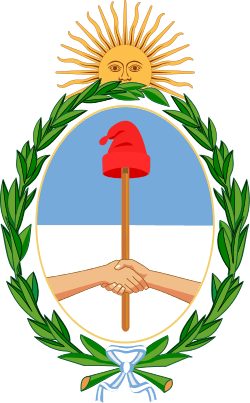Argentina–European Union relations
 |
|
European Union |
Argentina |
|---|---|
Argentina has strong cultural and historical links to the European Union (EU) (particularly through immigration from Spain and Italy) and the EU is Argentina's biggest investor.[1]
Agreements
Argentina was the first Latin American country to formalise relations with the EU under a 3rd generation cooperation agreement. The Framework Trade and Economic Co-operation Agreement between the EU and Argentina entered into force in 1990 and includes two recurrent principles of their cooperation: the strengthening of democracy and human rights, as well as regional integration. An EU-Argentina Joint Commission has also been established. A number of sectoral agreements were established in the 1990s. The main focuses of cooperation are education and training; economic competitiveness; capacity‑building in the public and academic sectors.[1] Argentina is part of the EU's negotiating with the regional bloc Mercosur for a free trade agreement which will form the back bone of EU-Latin American relations.[2]
Trade
The EU is Argentina's second largest export market (after Brazil). Argentina's exports to the EU are mainly agricultural and other primary goods. The EU exports less goods to Argentina in return (giving the EU a deficit of €3.4 billion) but has a surplus in services of €0.4 billion. The EU is also Argentina's biggest foreign investor, accounting for half of Argentina's foreign direct investment (FDI).[2]
| EU – Argentina trade in 2008[2] | ||||
|---|---|---|---|---|
| Direction of trade | Goods | Services | Investment flow | Investment stocks |
| EU to Argentina | €4.8 billion | €2.4 billion | €4.4 billion | €44.1 billion |
| Argentina to EU | €8.2 billion | €2.0 billion | €0.3 billion | €1.7 billion |
References
- ↑ 1.0 1.1 Republic of Argentina, European External Action Service
- ↑ 2.0 2.1 2.2 Bilateral relations Argentina, European Commission
External links
- EU delegation to Argentina (Spanish)
| |||||||||||||||||||||||||||||||||||||||||
